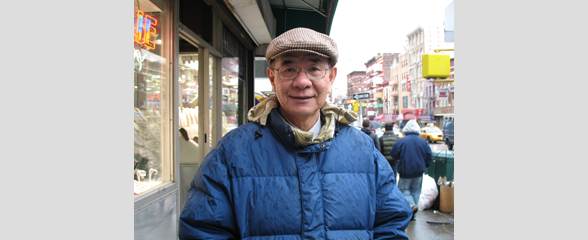Foreign workers, Chinese

2008.040.019 Oral History Interview with Ho Ying Pang March 16, 2008
Pang Ho Ying was born in Taishan, China, but grew up and spent a large portion of his life in Hong Kong until he moved to New York with his wife in 1988. Interestingly, his family was divided on both the East and West coasts: he and his two brothers settled in New York, while his two sisters moved to San Francisco. Pang vaguely remembers his first impression of New York upon his arrival as relatively less modern than Hong Kong, claiming that Chinatown appeared backwards since it lacked the modern buildings and technology of Hong Kong. Regardless, Pang perceived Chinatown as a friendly and supportive environment that deeply valued family relationships and friendships.
Though Pang did not plan or arrange employment in the United States before immigrating, he trusted he would find a suitable job. After two months, he found work through his younger brother as a general handyman or “gofer†at the Music Palace theater. Pang eventually became the director of the theater and managed the daily operations until he retired. In his interview, Pang walks through the history of the Music Palace and offers his opinions on what ultimately brought about the movie theater’s demise in 2000. Pang asserts that the reason the theater went out of business was because it was no longer in demand after the popularization of the relatively cheaper videotape rental. As the theater began running deficits and attendance records started dwindling, Pang recommended to the Hong Kong based theater owners that the business close its doors, bringing an end to the last movie theater that specialized in Hong Kong cinema in the United States. Pang recognizes the pragmatic reasons for closing the Music Palace but still expresses regret that the theater could no longer serve as a community gathering place for residents and visitors alike.
Pang goes on to identify some of the changes that he has witnessed in Chinatown more broadly, particularly that many old buildings had been upgraded and renovated, empty and vacant lots had gradually been built up, rent prices had skyrocketed, and the general aesthetics of the neighborhood had improved. He also hints at a generational shift and ethnic tension, comparing the new wave of Fukienese immigrants with the older generation of mainland Chinese immigrants to the neighborhood. While Pang notes that his children do not desire to return to Chinatown, he still explains that he hopes to remain living in Chinatown because of its convenient location, the Chinese food and tea, and general familiarity.